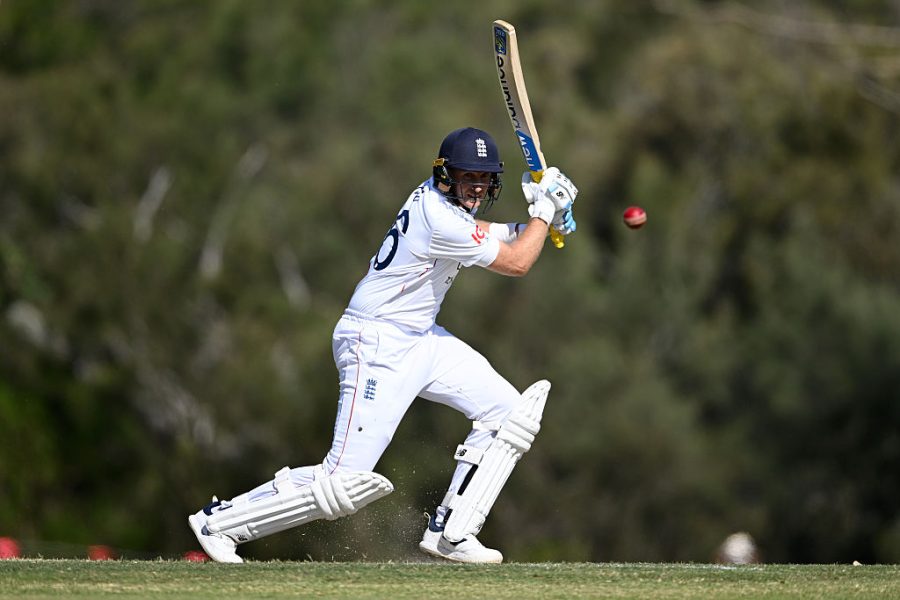‘Bazball’ – England’s exhilarating and exasperating style of playing cricket – has reached its denouement. Starting tomorrow, England face Australia in five Ashes tests that will define the legacy of this controversial philosophy and the four-year tenure of coach Brendon ‘Baz’ McCullum.
Bazball is a spirit of freedom. McCullum – who was a brilliant, daredevil captain for New Zealand – has rewired England to play cricket aggressively, and without ‘fear of failure’. Bold, and often brash, Bazball is a revolt against English cricketing orthodoxy – a stand for the cavaliers against the roundheads.
It can be argued that this approach is needed most in Australia. Winning a series Down Under is tough. Very tough. England haven’t won a single away Ashes test in their last fifteen attempts. Australia are bullish but ruthlessly pragmatic, and England are not going to beat them without playing extraordinary cricket. The swagger of Bazball (which many Australians dismiss as pomposity) might – just might – be the answer.
This Ashes, Bazball’s aggressive batting will face its toughest challenge
This series is England’s best shot at winning in Australia since the 2013–14 series. Joe Root is England’s finest batsman since the second world war, and Harry Brook is ranked number two in the world. The fast bowlers, Jofra Archer and Mark Wood, are potential destroyers. Ben Stokes is Ben Stokes.
The supporting cast is, on the whole, stronger than it has been for a decade. McCullum and Captain Stokes are uncannily good at spotting players with potential and nurturing them to succeed. They recalled Ben Duckett, a fast-scoring batsman with an irregular technique, after six years out of the team. He scored a century in his first innings under Bazball and has become one of the best openers in the world.
Even more remarkable is the case of off-spinner Shoaib Bashir, who Stokes brought into the squad after watching one clip on Twitter. Bashir, who is only 22, can hardly get a game in the county championship but has four five-wicket hauls in just 19 tests. That’s more than England’s 2005 Ashes hero Andrew Flintoff managed during his entire career.
McCullum and Stokes have clearly provided a mental (and social) environment where players can flourish. Under Bazball, England have won matches – such as against Pakistan in Rawalpindi and against India at Headingley – from positions where victory would have hitherto been unthinkable.
The trouble is, Bazball has also produced implausible defeats. In the Edgbaston test of the last Ashes, England were over 50 runs ahead and needed to take just two wickets from Australia’s worst three batsmen. They opted for a high-risk bouncer tactic that removed the possibility of Australia securing a draw. The outcome? Australia won without losing another wicket. Even worse, against New Zealand in Wellington in 2023, England became only the fourth team in test history to lose after enforcing the follow-on.
Ahead of last summer’s series against India, England promised a refined approach. When they made good on that promise, they won. When they didn’t, they lost. The most infuriating thing about Bazball is that the team doesn’t seem able, or willing, to learn from its mistakes. That explains why, in the biggest series – home and away against India and at home to Australia – Bazball has produced two draws, one defeat and no victories.
It comes down to the central tenet of Bazball: freedom. An attitude of freedom may be a great strength but, as England’s regular batting collapses have shown, it’s also a tragic flaw. A more sophisticated philosophy of liberty would recognise that, just as freedom of speech has limits, the licence to bat aggressively does not authorise recklessness. You shouldn’t need to be Adam Smith or Isaiah Berlin to understand that freedom comes with responsibilities.
This Ashes, Bazball’s aggressive batting will face its toughest challenge. Of the top nine bowlers in the world rankings, six are Australian. What’s more, the Aussie pitches (and even the ball) are the most bowler-friendly they’ve been in living memory.
The hosts are also, by a distance, the top-ranked team in the world. Amid all the hype, it’s worth remembering that visitors Down Under usually get spanked. This applies even to good teams. Ahead of the 2013-14 series, when England had taken the past three Ashes, many commentators expected them to win. They lost 5-0.
A similar result isn’t likely this time. Bazball will probably pull off at least one stunning victory (most plausibly in the first test, when Australia will miss their injured fast bowlers, Pat Cummins and Josh Hazlewood) but without self-control, it won’t prevail three times out of five.
But, if England can recognise that some of the old ways are still the best ways, and that the freedom to attack should not be absolute, they stand a chance. The next six weeks will define whether Bazball has been a glorious revolution or a hubristic flop.







Comments